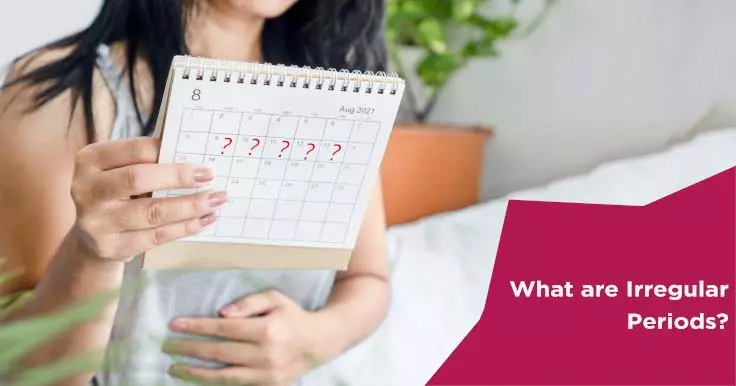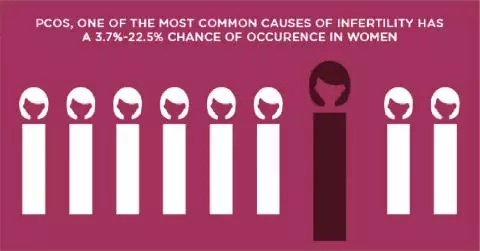Irregular Periods: Causes and Symptoms Explained

Most women will identify with the duration of 4 to 7 days as their average menstrual period. But there is no exact definition of a normal period that rings true for every woman. Moreover, many women do not have their periods on the 28th day of their menstrual cycles, which is considered to be the normal length of a menstruation cycle. On the other hand, it is quite usual for women to have a menstrual cycle that varies between 21 to 35 days.
However, if the length of a woman's menstrual cycle is less than 21 days or more than 35 days, it is a case of irregular periods. Early, late, skipped, or extended periods can also be regarded as irregular menstrual periods.
Symptoms of Irregular Periods
Since irregular menstruation differs from your usual pattern, the following are the symptoms that can be associated with it:
- An extended period of bleeding that is longer than what you usually experience during your periods
- The flow of your bleeding is heavier or lighter than the normal flow you have
- You experience bleeding between two menstrual cycles (mid-cycle bleeding)
- Bleeding that occurs at such times when you are not expecting it, such as during your pregnancy, after you have hit menopause, or before puberty
Causes of Irregular Periods
The main factors that can cause irregular menstrual periods are the following:
- Hormonal imbalances
- Medications
- Birth control pills
- Stress
- Polycystic ovary syndrome (PCOS)
- Extreme dieting or exercise
How to deal with irregular menstruation?
Irregular menstrual periods around the time of puberty or menopause aren't a case of much concern. However, if you suffer from a case of irregular menstruation during your reproductive years, it is advisable to seek medical help. Your doctor will be able to identify the exact cause of your irregular cycles and suggest effective treatments and therapy for overcoming the same.
 Infertility Counselling
Infertility Counselling Female Infertility Treatment
Female Infertility Treatment Andrology Treatment
Andrology Treatment Fertility Enhancing Surgeries - Female
Fertility Enhancing Surgeries - Female Fertility Enhancing Surgeries - Male
Fertility Enhancing Surgeries - Male Endoscopy Treatment
Endoscopy Treatment IUI Treatment
IUI Treatment IVF Treatment
IVF Treatment ICSI Treatment
ICSI Treatment Advanced IVF Solutions
Advanced IVF Solutions Embryology
Embryology Vitrification Egg, Embryo, Sperm Freezing
Vitrification Egg, Embryo, Sperm Freezing Preimplantation Genetic Testing (PGT)
Preimplantation Genetic Testing (PGT) Donation Program Embryo / Egg / Sperm
Donation Program Embryo / Egg / Sperm Self-cycleTM IVF
Self-cycleTM IVF

 Self-cycleTM IVF
Self-cycleTM IVF










